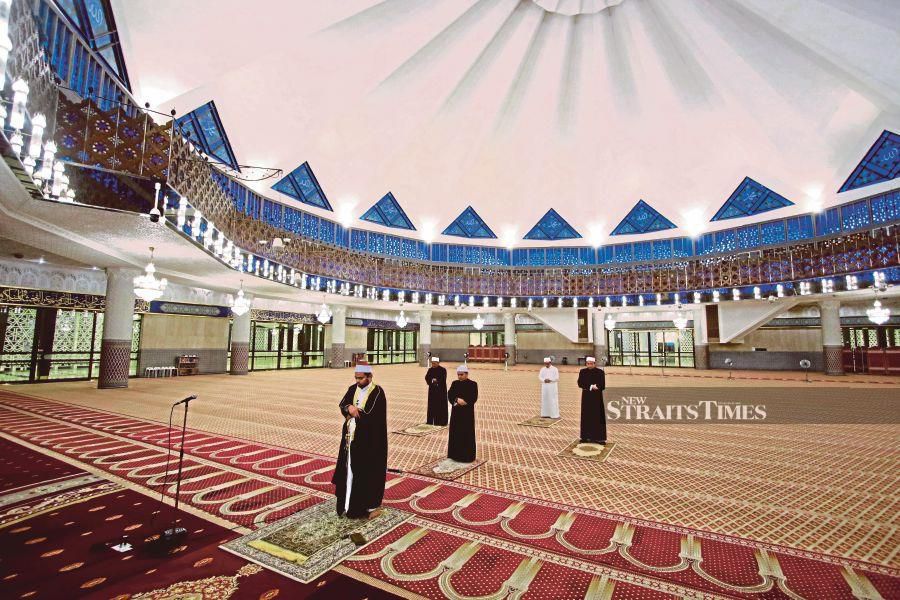ALHAMDULILLAH. We are once again visited by the blessed month of Ramadan.
Amid the chaos of a pandemic and the endless chatter for political mileage, we are prompted to take on the most significant of all endeavours and that is to remember Allah SWT.
Fasting during Ramadan is one method of remembrance. It is the fourth pillar of Islam.
The primary objective of fasting is for us to achieve cognisance of God (taqwa). It gives value to intentions and allows us to have a greater sense of humility and sincerity in our conduct.
What is meant by fasting is not merely abstention from food, drink and sexual intimacy from dawn to dusk, but a process of looking inward, of facing the inner realities of our own selves.
We are placed in a position to confront our urges and look at these desires for what they truly are. This effort is a form of purification of the self; to remove the maladies which infect the spiritual heart, such as envy, greed and ostentation.
Fasting also allows us to understand the plight of those who are destitute or impoverished, so as to generate greater empathy within us. Sometimes (if not most times), these individuals are actually richer than many, for their wealth comes in contentment.
Therein lies the lesson, that we should try as best to be content with divine decree. Ramadan is also the month in which the verses of the holy Quran were revealed to Prophet Muhammad (peace and blessings upon him). It is a month of collective and individual introspection.
In his illuminating text titled Book of Assistance, the great Mujaddid (renewer) of the 12th Islamic century Imam Abdallah al-Haddad warns that it is incumbent upon us to improve the soundness and sincerity of our intentions and examine and reflect well before embarking on them.
Intentions are the base of deeds. Depending on what they are, our deeds will either be good or ugly (faulty), sound or unsound. Sincere intentions may change the merely licit into the devotional, for means are judged according to their ends.
For example, eating for the sake of satiating one's hunger is an empty act in itself (falling under the category of sin if done in excess: gluttony), but if it is done with the intention of attaining strength for worship, it is deemed a noble act. In doing so, we are also able to reflect upon the divine name, Ar-Razzaq (The Provider).
Through thorough spiritual training, our intentions can be refined and directed for the sake of Him, and Him alone. Conviction will then take hold of the self.
Imam al-Haddad tells us that certainty is power, firmness and stability of faith so great that it is like a towering mountain which no doubts can shake and no illusions can approach.
Rather, there is a complete disappearance of confusion and doubt. If these influences come externally, it is not listened to by the ears nor is it heeded by the heart. It is negated in its entirety!
The sound hadith (sahih) narrated by al-Bukhari should be appreciated here: "Verily, in the body is a piece of flesh which, if sound, the entire body is sound, and if corrupt, the entire body is corrupt. Truly, it is the heart."
Such is the importance placed on guarding our hearts and rectifying our intentions. We need
to be reminded that blessings upon blessings descend upon those who are grateful in their success, patient in their trials and tribulations.
There is no lament, only constant witnessing of His many names, manifested in this reality bound by shared time and space.
In writing this, I am advising myself first and foremost. We pray and make supplications that this Ramadan expands our hearts to carry out good deeds and to do so with the best of intentions.
We also hope that we remain steadfast in the months which follow, to the point that we become His true vicegerents in this world.
We are all in this beautiful journey together. Everything that is beautiful and good comes from God Almighty, while all errors, flaws and mistakes are of my own doing.
I would like to apologise to those who might have been adversely impacted by my actions (or lack thereof) over the past year. Ramadan Mubarak!
The writer is a former research assistant for the Political Futures Experts Group at the International Institute of Islamic Thought and Civilisation





